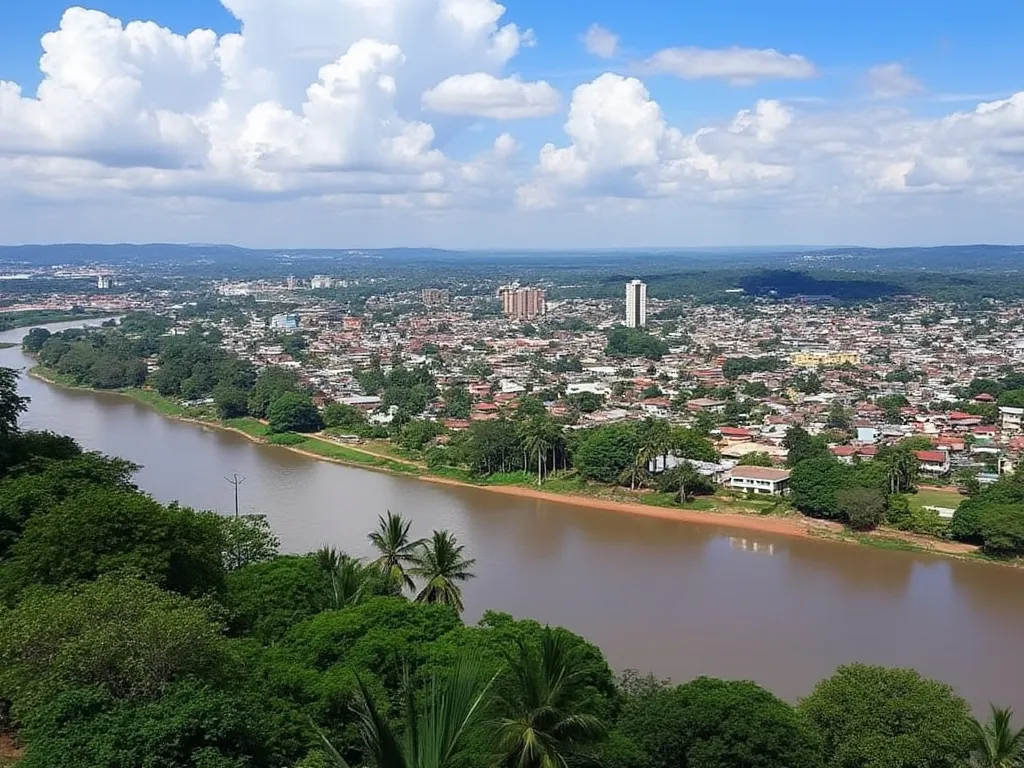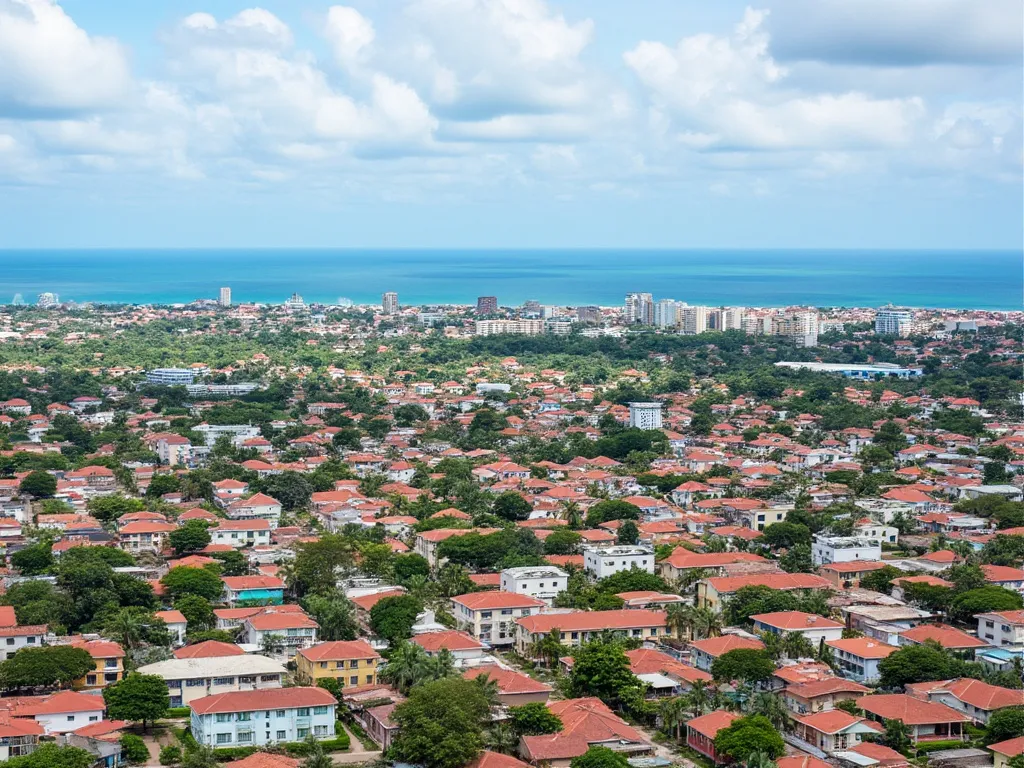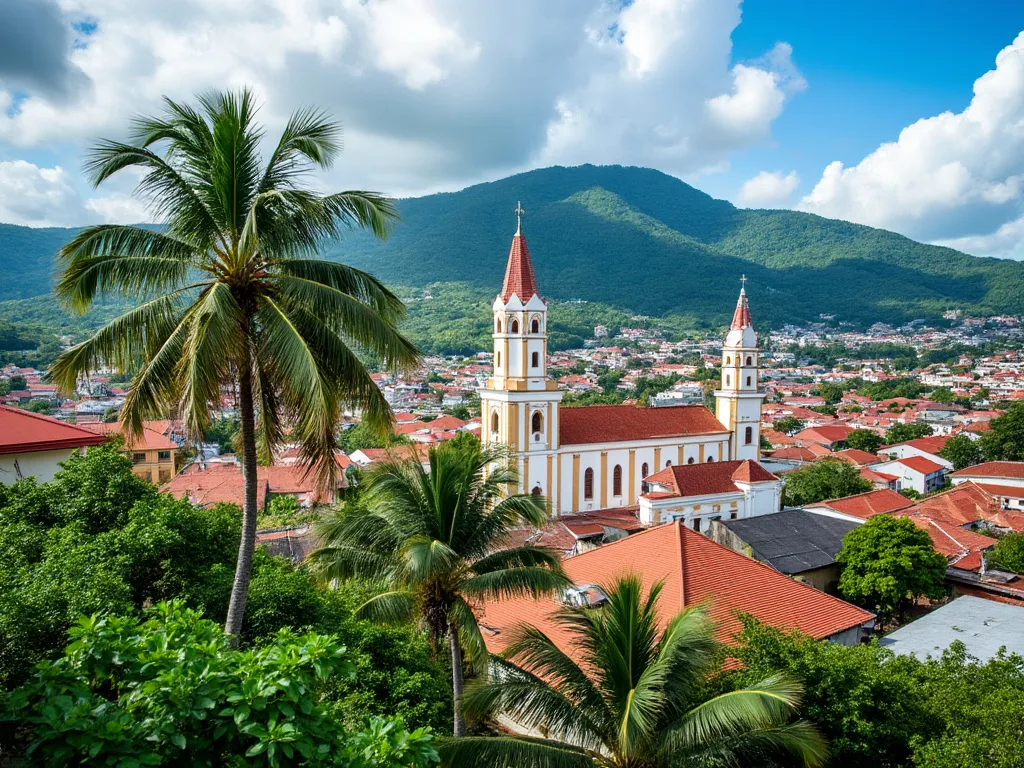
Bangui es la capital y ciudad más grande de la República Centroafricana, un país sin litoral ubicado en el corazón de África. Con una rica historia, cultura diversa y una belleza natural impresionante, Bangui es una ciudad que ofrece una mezcla única de experiencias tradicionales y modernas.
Información sobre Bangui
| País | 🇨🇫 República Centroafricana |
| Población | 734,350 (estimación 2020) |
| Coordenadas | 4°22′N 18°35′E |
| Área | 67 km² (26 mi²) |
| Clima | Clima de sabana tropical |
| Idioma | Sango, Francés |
| Moneda | Franco CFA de África Central |
| Zona horaria | Hora de África Occidental (UTC+1) |
| Proximidad a otras ciudades importantes | Brazzaville (República del Congo) - 1,200 km (750 mi), Kinshasa (República Democrática del Congo) - 1,500 km (930 mi) |
Antecedentes Históricos de Bangui
Bangui fue fundada en 1887 por colonizadores franceses, quienes la establecieron como un puesto comercial en el río Ubangi. La ciudad creció rápidamente durante el período colonial, convirtiéndose en un importante centro para las industrias del algodón y el café. Después de que la República Centroafricana obtuvo su independencia en 1960, Bangui se convirtió en la capital del país y desde entonces ha desempeñado un papel significativo en la política, economía y cultura del país.
Ubicación Geográfica de Bangui
Bangui está situada en la orilla norte del río Ubangi, que forma la frontera entre la República Centroafricana y la República Democrática del Congo. La ciudad se encuentra en un valle rodeado de colinas y montañas, con una elevación promedio de 350 metros (1,150 pies) sobre el nivel del mar. El clima es de sabana tropical, con altas temperaturas y alta humedad durante todo el año.
Significado Cultural de Bangui
Bangui es una ciudad con un rico patrimonio cultural, que refleja las diversas influencias de las tradiciones africanas, francesas e islámicas. La ciudad alberga varios museos, incluido el Museo Nacional de la República Centroafricana, que muestra la historia, el arte y la cultura del país. La ciudad también organiza varios festivales a lo largo del año, incluido el Festival Internacional de Cine de Bangui y el Festival de Música de la República Centroafricana.
Importancia Económica de Bangui
Bangui es el centro económico de la República Centroafricana, con una economía diversa basada en la agricultura, la minería y la manufactura. La ciudad es un importante centro de producción de algodón, café y tabaco, y también alberga varias fábricas de textiles y procesamiento de alimentos. El puerto de la ciudad en el río Ubangi es un importante centro de transporte, que conecta el país con la República Democrática del Congo y otros países vecinos.
Datos Interesantes sobre Bangui
- Bangui alberga el mercado más grande de la República Centroafricana, el Mercado de Bangui, que vende una amplia gama de productos, incluidos productos frescos, artesanías y souvenirs.
- La ciudad alberga varios monumentos históricos, incluido el Palacio Presidencial, el edificio de la Asamblea Nacional y la Catedral de Nuestra Señora de la Inmaculada Concepción.
- Bangui es un destino popular para el turismo de aventura, con oportunidades para hacer senderismo, pescar y observar la vida silvestre en las colinas y bosques circundantes.
Atracciones Turísticas en Bangui
- El Museo Nacional de la República Centroafricana
- El Palacio Presidencial
- La Catedral de Nuestra Señora de la Inmaculada Concepción
- El Mercado de Bangui
- El río Ubangi
Conclusión sobre Bangui
Bangui es una ciudad con una rica historia, cultura diversa y una belleza natural impresionante. Desde sus monumentos históricos y atracciones culturales hasta sus vibrantes mercados y oportunidades de turismo de aventura, Bangui tiene algo que ofrecer para cada tipo de viajero. Ya sea que estés interesado en explorar el pasado colonial de la ciudad, experimentar su cultura moderna o simplemente disfrutar de la belleza natural del campo circundante, Bangui es un destino que seguramente dejará una impresión duradera.
 Banjul
Banjul
 Basse-Terre
Basse-Terre
 Bandar Seri Begawan
Bandar Seri Begawan
 Bangkok
Bangkok